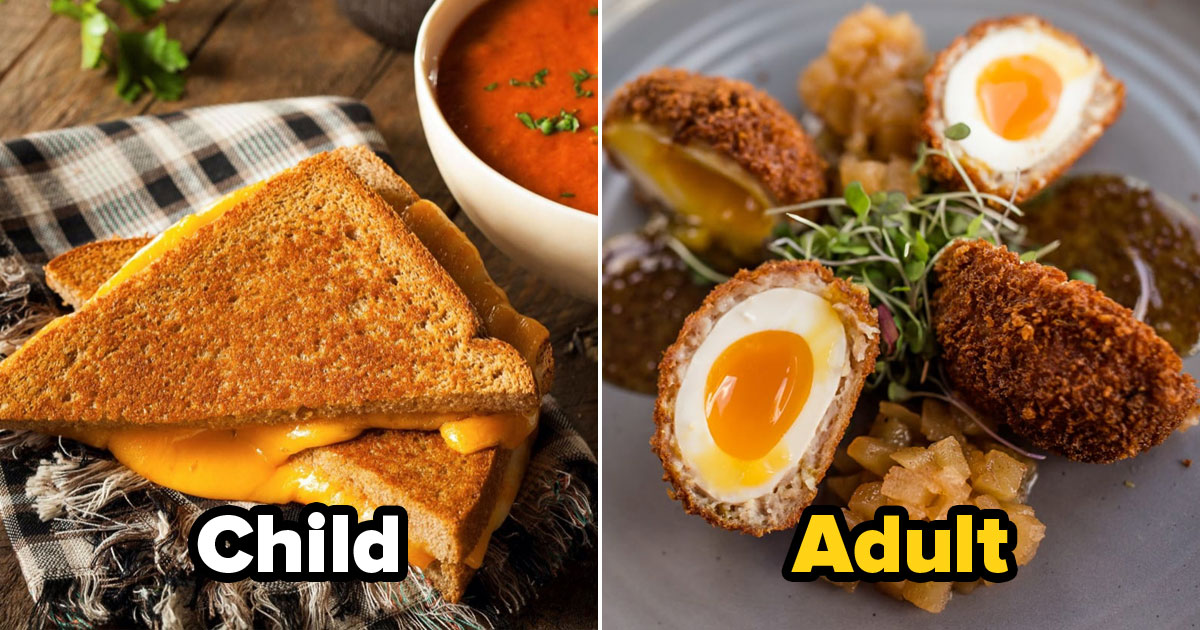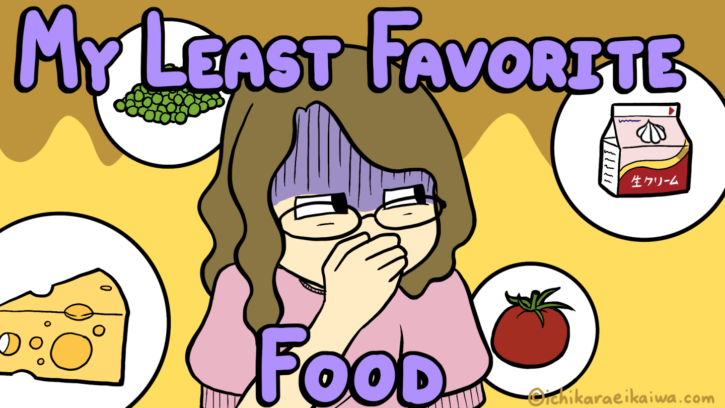Least favourite meals, a culinary enigma, invite us on a adventure of discovery, unraveling the intricate tapestry of private personal tastes, sensory reports, and cultural influences that form our culinary aversions. Embarking in this gustatory journey, we delve into the depths of why positive meals evoke a refrain of grimaces somewhat than gastronomic pleasure.
From the unpalatable textures to the smelly aromas, the sensory facets of disliked meals play a pivotal position of their rejection. Cultural norms and familial traditions additional intertwine with our meals personal tastes, including a layer of complexity to this culinary puzzle.
Non-public Personal tastes and Reviews

Meals personal tastes are extremely subjective and influenced by way of a large number of things, together with private reports, cultural backgrounds, and particular person style personal tastes. Dislike for positive meals can stem from numerous causes, starting from unsightly style sensations to detrimental associations shaped all over adolescence.
Youth Reviews
Youth reports play an important position in shaping meals personal tastes. Unfavourable reports, similar to being pressured to devour unfamiliar meals or having unsightly encounters with explicit dishes, can result in the improvement of aversions that persist into maturity.
Cultural Influences
Cultural influences additionally give a contribution to meals personal tastes. Sure meals which are regarded as cuisine in a single tradition could also be met with distaste in any other. That is steadily because of variations in culinary traditions, availability of elements, and social norms surrounding meals intake.
Person Style Buds
Person style buds play a basic position in figuring out meals personal tastes. The quantity and sensitivity of style buds range from individual to individual, influencing the belief of flavors and textures. Some folks could have a heightened sensitivity to positive flavors, similar to bitterness or sweetness, making them much more likely to dislike meals that comprise the ones flavors.
Sensory Facets of Disliked Meals
Sensory attributes play an important position in figuring out meals personal tastes and aversions. Disliked meals steadily possess explicit style, texture, scent, and look that give a contribution to their detrimental belief.
Style
Sour, bitter, and smelly tastes are regularly related to disliked meals. Those tastes will also be overpowering and unsightly, triggering a detrimental response within the style buds. As an example, the bitterness of uncooked greens like broccoli or the sourness of citrus culmination could also be perceived as unpalatable by way of some folks.
Texture
Ugly textures, similar to delicate, slimy, or grainy, too can give a contribution to meals aversions. Those textures can create an uncomfortable sensation within the mouth, making the meals tough to swallow or chunk. For example, the slimy texture of okra or the grainy texture of oatmeal could also be disliked by way of positive folks.
Scent
Sure meals have sturdy odors that may be off-putting to a few folks. Those odors can cause an instantaneous detrimental response, even ahead of the meals is tasted. As an example, the smelly scent of blue cheese or the fishy scent of seafood could also be unsightly to a few folks.
Look
The illusion of meals too can affect its acceptability. Meals with extraordinary colours, shapes, or textures could also be perceived as unappetizing and have shyed away from. For example, the black colour of squid ink pasta or the spiky texture of durian fruit might deter some folks from making an attempt those meals.
Dietary Concerns: Least Favourite Meals

The dietary worth of least favourite meals can considerably affect intake conduct. Meals wealthy in crucial vitamins, similar to nutrients, minerals, and fiber, could also be much more likely to be fed on, even supposing they don’t seem to be in particular stress-free. Conversely, meals low in dietary worth or prime in dangerous fat, sugar, or sodium could also be much less prone to be fed on.
Dietary wisdom performs a an important position in shaping meals possible choices. People who perceive the dietary advantages of positive meals are much more likely to include them into their vitamin, even supposing they don’t to begin with revel in them. Well being considerations too can affect meals possible choices, as folks might steer clear of meals that they consider are dangerous or might exacerbate present well being prerequisites.
Hidden Vitamins
Some disliked meals might comprise hidden vitamins or recommended compounds that don’t seem to be right away obvious. As an example, Brussels sprouts, that are steadily disliked for his or her sour style, are wealthy in nutrients C, Ok, and fiber. In a similar way, liver, which is steadily have shyed away from because of its sturdy taste, is a great supply of iron, nutrition B12, and folate.
Social and Cultural Components
Our meals personal tastes are closely influenced by way of the social and cultural surroundings we develop up in. Those components form our perceptions of what meals are appropriate, fascinating, or even disgusting.
Social Norms and Cultural Ideals
Social norms dictate what meals are regarded as appropriate or unacceptable inside of a given society. Those norms are steadily according to cultural ideals about what meals are protected, wholesome, or suitable for positive events. As an example, in some cultures, it is thought of as taboo to devour positive animals, similar to beef or pork.
In different cultures, positive meals are related to explicit non secular or ethnic identities.
Societal Expectancies and Peer Drive
Societal expectancies and peer power too can play an important position in our meals personal tastes. We might really feel burdened to devour positive meals as a way to are compatible in with our friends or to fulfill the expectancies of our circle of relatives or neighborhood.
As an example, a kid could also be burdened to devour greens even supposing they don’t like them as a result of their folks consider that greens are wholesome.
Meals in Cultural Identification and Social Interactions
Meals performs crucial position in cultural id and social interactions. It may be a solution to categorical our cultural heritage, hook up with others, and have fun particular events. As an example, many cultures have conventional dishes which are served at explicit vacations or gala’s.
Sharing meals with others will also be a solution to construct relationships and fortify neighborhood bonds.
Overcoming Meals Dislikes

Meals dislikes are not unusual, however they may be able to be conquer. There are a variety of methods that can be utilized to lend a hand folks amplify their culinary horizons and revel in a greater diversity of meals.
Slow Publicity
One efficient approach to triumph over a meals dislike is to progressively divulge your self to the meals. Get started by way of making an attempt a small quantity of the meals in a non-threatening atmosphere. Through the years, you’ll progressively building up the volume of meals you devour till you’ll be able to revel in it.
Style Bud Retraining
Style buds will also be retrained to revel in new meals. This will also be carried out by way of many times exposing your self to the meals, even supposing you do not to begin with find it irresistible. Through the years, your style buds will start to adapt to the brand new taste and you’ll begin to revel in it extra.
Recipe Adjustments, Least favourite meals
Differently to triumph over a meals dislike is to switch recipes to cause them to extra interesting. As an example, if you do not just like the style of broccoli, you’ll take a look at roasting it with olive oil and garlic. This may give the broccoli a extra flavorful and interesting style.
Advantages of Making an attempt New Meals
There are lots of advantages to making an attempt new meals. Increasing your culinary horizons will let you:
- Make stronger your well being
- Get monetary savings on groceries
- Make new buddies
- Know about other cultures
- Grow to be a extra adventurous eater
Meals Schooling and Cooking Categories
Meals training and cooking categories can lend a hand folks conquer meals dislikes by way of offering them with the information and abilities they wish to get ready and revel in new meals. Those categories can train folks about other cooking tactics, elements, and flavors. They may be able to additionally supply a supportive surroundings the place folks can take a look at new meals and percentage their reports with others.
Crucial Questionnaire
What are the commonest causes for disliking positive meals?
Non-public personal tastes, adolescence reports, cultural influences, and particular person style buds all give a contribution to shaping our meals aversions.
How do sensory attributes affect our belief of meals?
Style, texture, scent, and look play a an important position in figuring out whether or not we discover a meals interesting or unpalatable.
Can dietary considerations affect our meals possible choices?
Dietary wisdom and well being issues can affect our meals personal tastes, main us to steer clear of positive meals perceived as dangerous.

